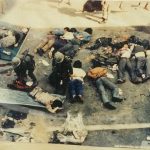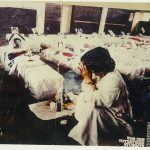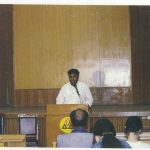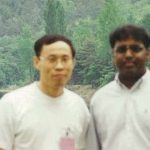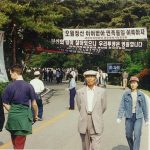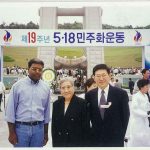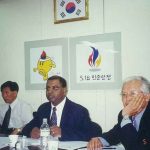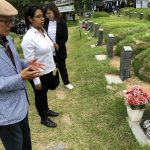Memories of May 18 (518) over 24 years …
Today is May 18th or 518. It is a sacred day for me. Forty years ago today, on May 18th, 1980, students and ordinary citizens of Kwangju (presently referred to as Gwangju), a southern city in South Korea, stood against south Korean military dictators. They wanted democracy and the rule of law reinstated in South Korea.
Many of them were killed, many were made to disappear, many were captured, tortured and imprisoned, and in 1980 May, Kwangju Uprising was brutally and bloodily suppressed by then military government. It was the blood of those heroes of Kwangju that gave birth to Korean democracy. Kwangju Uprising sent South Korean military out of politics, back to their barracks, forever. It is due to that historical event, nonparallel in modern global history, today South Korea is free and democratic nation.
I first heard very little about Kwangju Uprising in mid 1980s when I was a student in Sri Lanka. I first saw video footage of the uprising in 1988 in Hong Kong at the To Kwa Wan flat of Anselmo Lee. But I could not visit Kwangju until May 1996.
That first visit to Kwangju connected me deeply to the spirit of Kwangju Uprising. With a group of 20 youth from around the world I took part in simple commemoration events held at Mangwoldong Cemetery in Kwangju where the victims of Uprising were laid to rest. Upon returning from Kwangju in 1996, I wrote a short article entitled, Kwangju, A Flame of Democracy, (https://web.archive.org/web/20070312011433/http://www.hrsolidarity.net/mainfile.php/1996vol06no02/117/). Twenty-four years ago I wrote:
“… The people in Kwangju were not even able to talk about the Kwangju Uprising until recently. This year [1996] they were able to publicly commemorate the Uprising with the added impetus given by the present government’s move to bring to trial the perpetrators of human rights violations, the two former presidents, Chun Doo Hwan and Ro Tae Woo. However, the story does not end there even if the two former presidents are going to be sentenced to jail. There are many wounds to be healed among the people of Kwangju even after 16 years. …
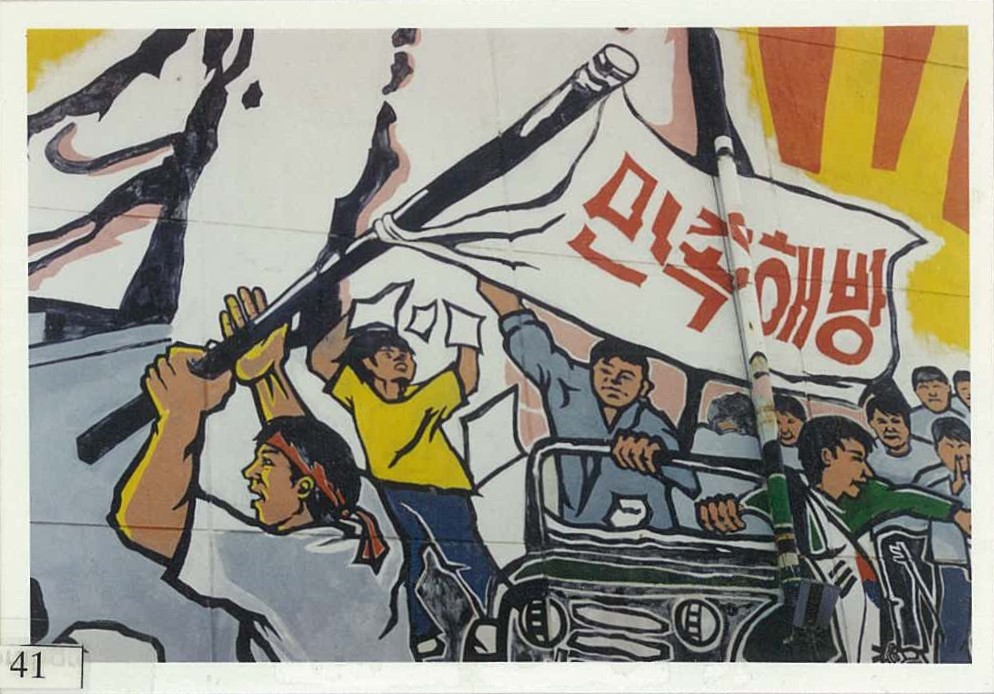
People in Kwangju are able to commemorate the Kwangju Uprising with much hope for future. The spirit of the people or the Spirit of Kwangju was evident among the thousands of people who gathered on the 17th May evening at the city [in Kumnamno] and the morning of the 18th at the Mang Wol Dong cemetery where most of the victims were put to rest. … The people of Kwangju have struggled a long way to achieve their goals and aspirations for democracy. They shed a light upon all Asian nations. They bring hope to many people still kept under military regimes [referring to Indonesia, East Timor, Burma/Myanmar] with ongoing gross human rights violations. They witness that someday, sooner or later, those perpetrators will have to be accountable to the people whose rights are being violated in brutal forms. They also witness that there is no escape for those perpetrators of human rights violations and sooner or later they will be tried and punished.
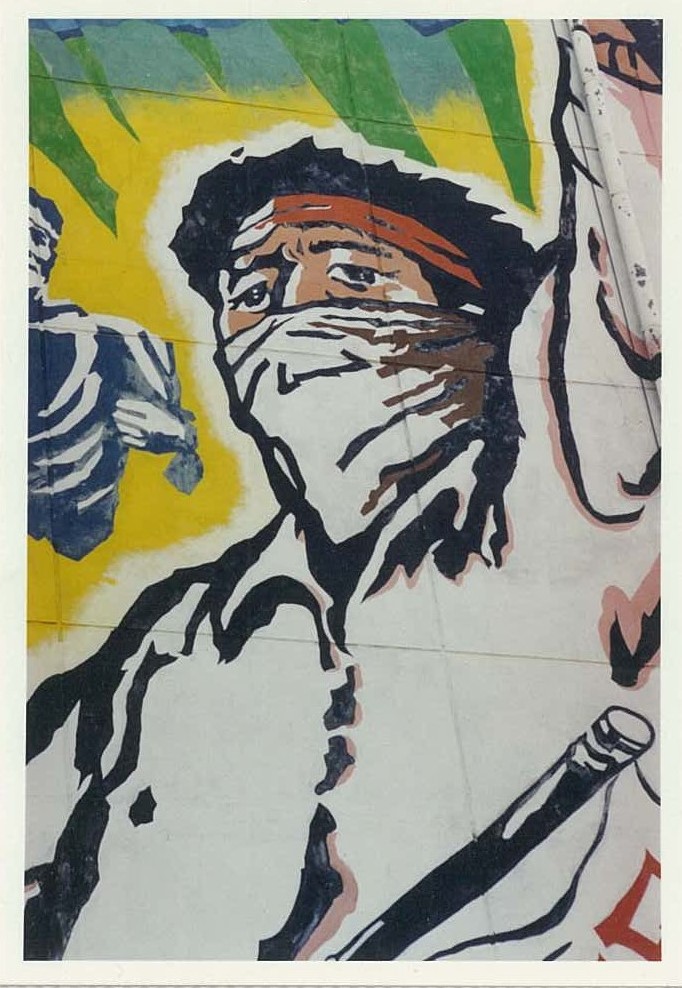
The message of peace and democracy was [written] in the blood of the people of Kwangju. It was too costly that they had to shed that blood. Although physically dead the spirit of those lives remains within the people of Kwangju and the same blood carries on the struggle for peace and democracy.”
Since 1996, I visited Kwangju regularly and took part in over 10 annual commemoration events. I also helped connect many Asian civil society organizations to Kwangju. As of today, hundreds of Asian civil society organisations, family members of the (enforced) disappeared have connected to Kwangju. Kwangju also gifted me with a unique group of friends—some who have been captured and tortured as students in 1980. Some of them, like Lee Jay, late Eugene Soh and former mayor of the city, Yoon Jang-hyun, Na Kahn Chae, Park Jaeman, Kim Sooa, Moon Jeongho, Lee Dokwon, etc., have become more than friends—they are like family to me.
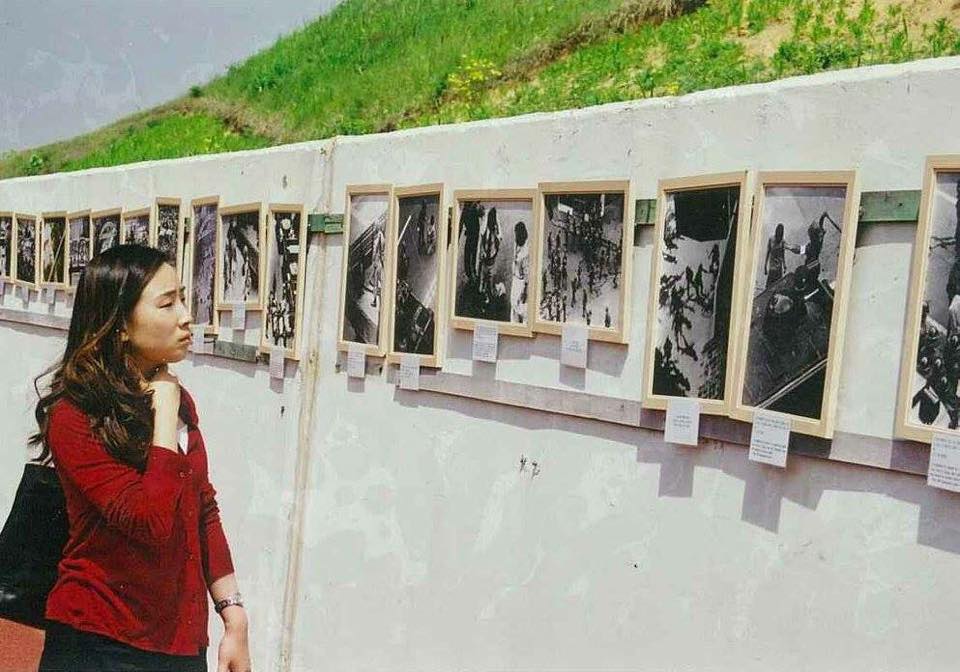
Today, I am not able to be there in person to commemorate the Kwangju Uprising and pay honor to the fallen in person. But I got a call from Lee Haeyoung, who took her two little kids and husband to Kwangju from Seoul to take part in commemoration activities. Nineteen years ago, today (May 18, 2001), Haeyoung who was a uni student at that time, came down from Seoul to Kwangju to meet me. I met her at the 518 Cemetery for the first time and that was the beginning of her journey in the social movements. Haeyoung today is the Director of Ashoka South Korea. I told Haeyoung that I am glad she is there that she will also be representing me when she pays respect at the 518 National Cemetery and Mangwoldong Cemetery in Kwangju.
Two years ago, today (May 2018), I took my daughter, Aakashi to Kwangju to take part in commemorations. She met many of my friends, including Lee Jay and his family, Mayor Yoon Janghyun and Eugene Soh. Eugene took Aakashi around the Mangwol Dong Cemetery narrating the history in the best way anyone could.
Last year, in the month of May, Eugene died in Baltimore (here is the link to an article I wrote in memory of Eugene’s passing on). Later, his remains were interned in Mangwoldong Cemetery. I asked Haeyoung to visit the resting place of Eugene and pay respect also on behalf of me. This morning she shared these photos taken at the Cemetery.
Although South Korea is a democracy today, it still has issues, specifically with relation to its criminal justice system and the rule of law in general. There have been politically motivated and malicious prosecutions and some of my friends with high degree of integrity have been put in jail. There have also been many cases of miscarriage of justice—wrongful convictions resulting in innocent persons put in jail, an in some cases, over 20 years.
Now some may ask me why, as a Sri Lankan, I did not write about my own country. Ironically, it was today in 2009 that Sri Lankan civil war officially brought to an end. For me, it is not a moment to celebrate. Rather, it is a moment to remember ALL those who sacrificed their lives during the civil war, regardless of their ethnic or political backgrounds. Civil war has ended but REAL democracy and the rule law has not been (re)established. There has not been true reconciliation–use of religious and nationalist rhetoric by politicians continue to fan hatred and divisions among the people. There are no real heroes in war, only victims–trauma of suffering is to last generations and decades! If you glorify a war, you are doing that at the expense of ALL those who have suffered! Until ALL those who lost their lives are remembered, there will not be true reconciliation.
